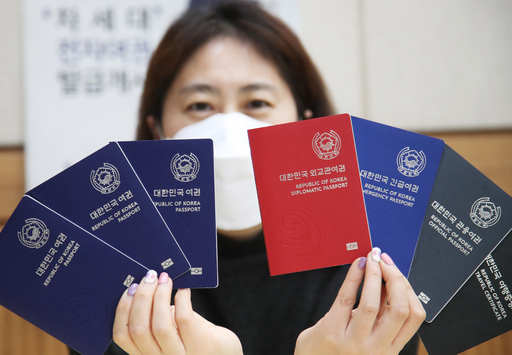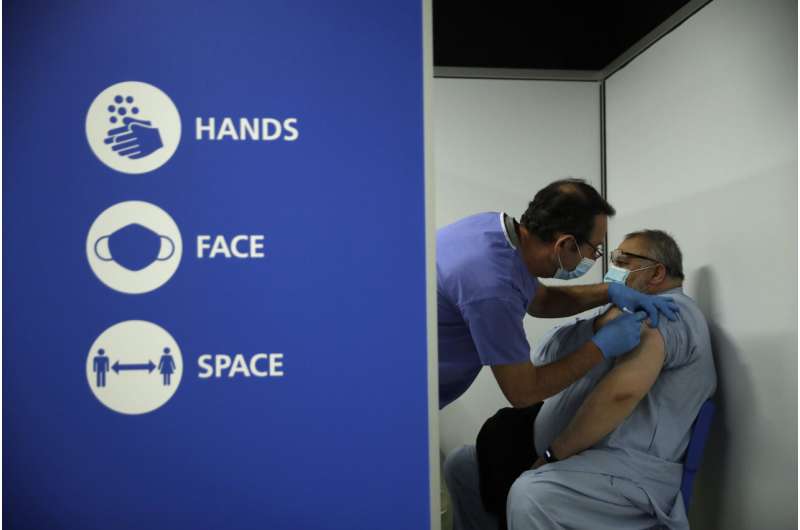
Britons are encouraged these days—though in most cases not required—to wear face coverings in crowded indoor spaces. But Prime Minister Boris Johnson regularly appears in the packed, poorly ventilated House of Commons cheek-by-jowl with other maskless Conservative lawmakers.
For critics, that image encapsulates the flaw in the government’s strategy, which has abandoned most pandemic restrictions and is banking on voluntary restraint and a high vaccination rate to curb the spread of the coronavirus.
As winter approaches, bringing the threat of a new COVID-19 surge, Britain’s light touch is setting it apart from more cautious nations.
“The story of this government in the pandemic is too little, too late,” said Layla Moran, an opposition Liberal Democrat lawmaker who heads the All-Party Parliamentary Group on Coronavirus.
She said some U.K. hospitals are already seeing the number of virus patients in intensive care units that they would normally expect in the depths of winter, though overall daily hospital admissions are running at about a fifth of January’s peak.
And while cases soared when restrictions were lifted this summer, deaths didn’t follow at anywhere near the same pace. But the winter months, when respiratory diseases are usually at their highest, could bring an added challenge.
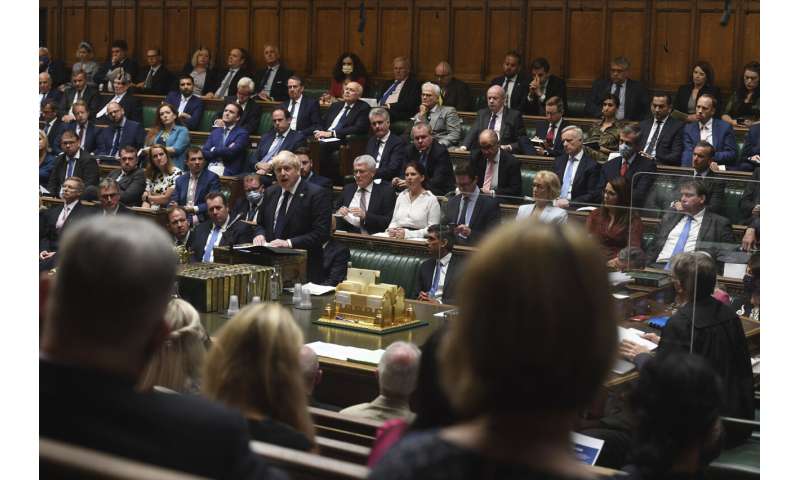
“Unless the government starts to do something differently, I don’t think we’re going to be able to avert the worst this winter,” Moran said.
The government argues that its plan is working so far—and it can change course if needed.
Britain has recorded more than 135,000 coronavirus deaths, the highest toll in Europe after Russia and about the same number per capita as the United States. Yet it also has organized a successful inoculation campaign that has seen 65% of the whole population fully vaccinated.
That relatively high rate led Johnson’s government to decide in July that it was safe to scrap restrictions on business activity and daily life: no more social distancing, limits on gatherings or masks required anywhere in England. Businesses can impose their own measures, but otherwise Johnson has encouraged people to “be sensible.”
In contrast to many other European nations—even some with higher inoculation rates than the U.K.—proof of vaccination is not required in England to eat in restaurants, attend mass events or enter crowded venues such as nightclubs. Scotland, which is part of the U.K. but sets its own health rules, is being more cautious, introducing vaccine passports for nightclubs and keeping mandatory masks indoors.
Pupils and teachers in England’s schools don’t have to wear face coverings, despite the objections of unions and public health officials—a contrast to European countries including France, Italy and Spain that have kept mask requirements for schools.
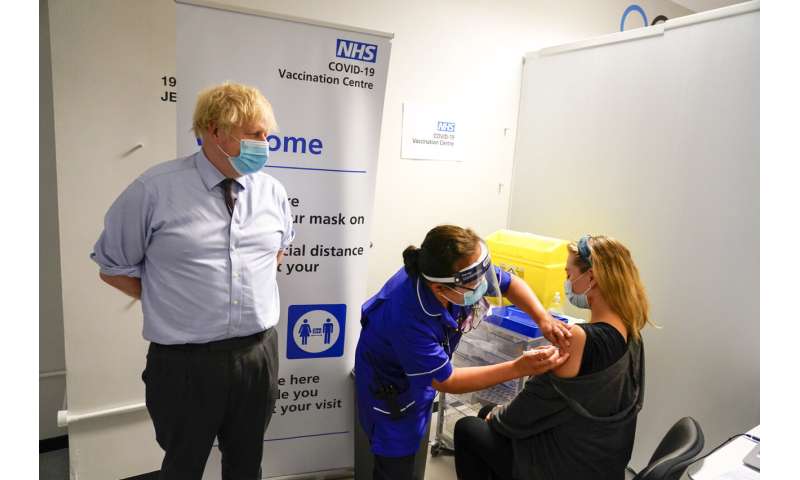
While the U.S. has made vaccinations compulsory for millions of workers, Johnson’s government requires proof of inoculation only for nursing home staff, and is considering it for health care workers.
Once the U.K. had some of Europe’s strictest international travel rules, but it’s easing quarantine and testing restrictions for many visitors starting next month.
The U.K. has often gone its own way during the pandemic. Health authorities gambled on a gap of two to three months between doses, rather than the three to four weeks recommended by vaccine makers, in order to speed the rollout. That paid off, with studies since suggesting the longer gap is at least as effective, and possibly more so.
Britain diverged from its peers again on the question of vaccinating kids. When the U.S., Canada and much of the European Union extended inoculations to children between 12 and 15, the U.K. held off, saying the health benefit to kids was marginal. Then Britain decided to vaccinate that age group after all—but initially with a single dose, rather than the usual two.
Britain has also gone further than most nations in giving vaccine booster shots, offering a third dose to everyone over 50. That puts it at odds with the World Health Organization, which has strongly objected to rich nations giving a third round of shots when poor countries don’t have enough vaccines for their first. In the U.S., authorities endorsed booster shots for millions of older or otherwise vulnerable Americans.
Johnson’s government is counting on vaccines to do the heavy lifting against the virus, supplemented by voluntary “common sense” behavior.

But after an exceptionally long and strict lockdown earlier this year, it’s not clear Britons will freely choose any virus-prevention measures they’re not forced to take. When restrictions were initially lifted, just under two-thirds of people said they planned to keep wearing masks in shops and on public transport. Now the number of people wearing coverings has declined sharply on the London Underground, which requires but barely enforces mask use.
Critics say the government has failed to learn from experience and seems to be fueled by optimism rather than evidence.
Stephen Reicher, a University of St. Andrews psychology professor who helps advise the government, recalled that a year ago, Johnson’s team was slow to act when scientific advisers recommended a short “circuit-breaker” lockdown to curb fast-rising coronavirus cases.
“As always happens if you wait and things get out of control, you have to impose greater restrictions, which is why we had a non-Christmas and such an awful winter and spring” spent in lockdown, he told Sky News.
Moran, the opposition lawmaker, and other critics argue that moderate measures, such as better ventilation in schools and masks indoors, could avert the need for stringent restrictions this winter.
But the government notes that scientists’ most pessimistic predictions, which said cases could rise to 100,000 a day by the time schools reopened in September, haven’t come true.
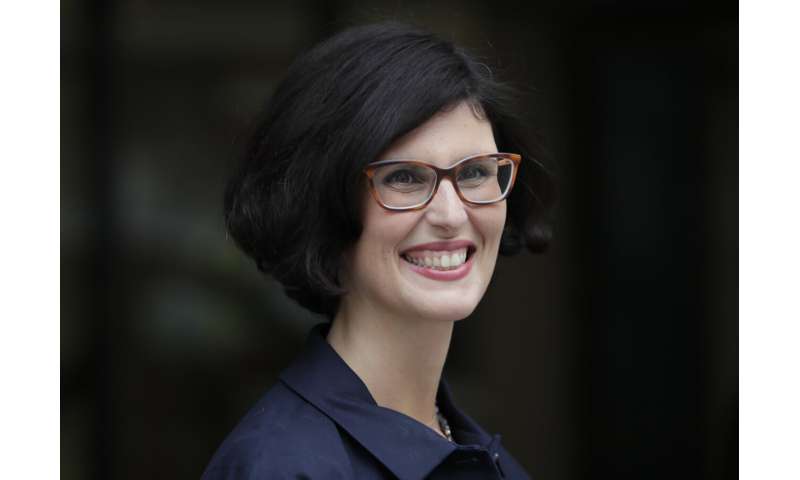
The U.K. is now averaging about 140 deaths daily—just over one-tenth of what it saw at the peak—and 30,000 new infections a day.
Johnson said restrictions such as mandatory masks and work-from-home orders could be reimposed if hospitalizations surge. But he hoped it wouldn’t be needed.
“The result of this vaccination campaign is that we have one of the most free societies and one of the most open economies in Europe,” he said. “And that’s why we are now sticking with our strategy.”
Standing beside him at a news conference, Chief Scientific Adviser Patrick Vallance applied the brakes. He said the lesson of the pandemic was that “when you make a move, you have to go earlier than you think you want to, you need to go harder than you think you want to.”
“So if this goes in the wrong direction … it’s important that the measures are put in place early enough and they’re significant enough,” he said.
© 2021 The Associated Press. All rights reserved. This material may not be published, broadcast, rewritten or redistributed without permission.
Citation: UK counts on vaccines, ‘common sense’ to keep virus at bay (2021, September 26) retrieved 2 October 2021 from https://medicalxpress.com/news/2021-09-uk-vaccines-common-virus-bay.html
This document is subject to copyright. Apart from any fair dealing for the purpose of private study or research, no part may be reproduced without the written permission. The content is provided for information purposes only.
Note: This article have been indexed to our site. We do not claim ownership or copyright of any of the content above. To see the article at original source Click Here












